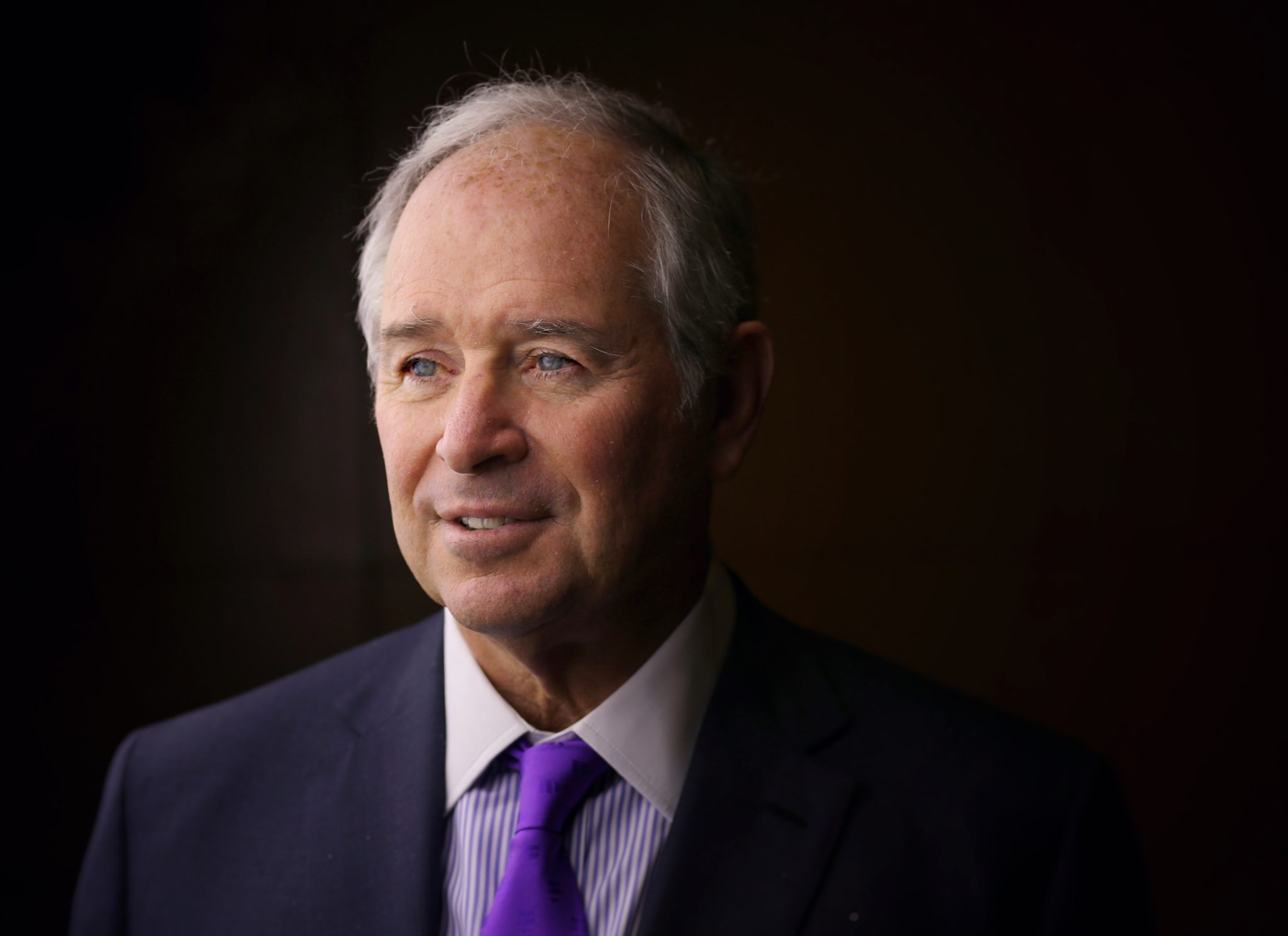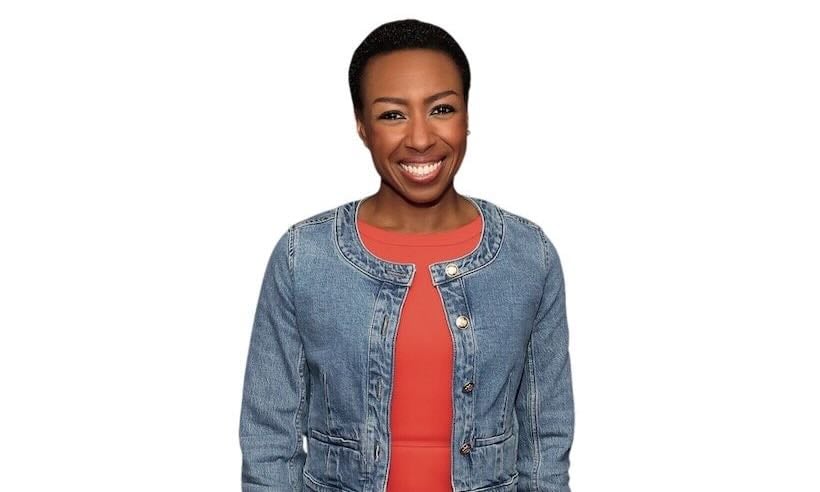At age 72, Stephen Schwarzman, cofounder of financial giant Blackstone, can look back on a remarkable life. He’s done exactly that in his new book, What It Takes: Lessons in the Pursuit of Excellence, which Schwarzman describes as “part-memoir, part playbook for success.”
Schwarzman grew up in Philadelphia, where his father owned Schwarzman’s Curtains and Linens, a successful shop, but resisted Steve’s imprecations to open additional locations. That hunger to live larger carried Schwarzman to Yale, where he led a rebellion against rules that forbade women from staying overnight in men’s rooms and was tapped to be a member of the exclusive secret society Skull and Bones.

Graduating from college, Schwarzman took a job at financial firm Donaldson Lufkin & Jenrette, then, after attending Harvard Business School, moved to Lehman Brothers, where he became head of the firm’s mergers and acquisitions department. In 1985, after leaving Lehman, Schwarzman and his friend Pete Peterson cofounded the Blackstone Group with an initial $400,000 investment. Created to pursue M&A work, the firm would branch into real estate and other alternative assets, and now has some $500 billion in assets under management. In the process, Schwarzman has become one of the world’s richest people, with an estimated net worth of more than $12 billion.
As Blackstone has grown, so has Schwarzman’s stature as an international financial powerbroker, giving advice to Treasury secretaries Hank Paulson and Tim Geithner during the financial crisis and serving as an unofficial liaison during the recent U.S.-China trade talks. A longtime friend of Donald Trump, Schwarzman has also served as a private sector advisor to the president. He typically declines to discuss the relationship, saying only that if he can be helpful by giving advice, then he should be.
In keeping with his conviction that investors need to focus on big opportunities and know which ones to pass up, Schwarzman has also become a massive donor to some of the world’s most prominent cultural and educational institutions, including the New York Public Library and universities such as Yale, Oxford, MIT and Tsinghua, in Beijing. Less well-known are his gifts to Catholic schools and the USA Track & Field Foundation, as well as his successful commitment to hiring 100,000 military veterans at Blackstone.

I met with Schwarzman in the boardroom of Blackstone, at 345 Park Avenue in Manhattan. In conversation, he’s poised, thoughtful, relaxed, unself-conscious; Schwarzman seems profoundly comfortable in his own skin (and in his own element), which helps explain his stature in a community where brilliance and emotional intelligence don’t always coexist. Which doesn’t mean that Schwarzman can’t be rough; he has a reputation for using hardball language and tactics when he thinks it necessary, and once prompted controversy for comparing Barack Obama’s attitude toward the financial community to the Nazi invasion of Poland.
Perhaps the only moments during our conversation when Schwarzman seemed even mildly out-of-sorts came when I asked him his rationale for writing a book—it was, he said, to “transfer knowledge”—or other potentially personal questions. And when I raised the subject of legacy with Schwarzman, he visibly grimaced. Steve Schwarzman, I got the feeling, likes shaping the future far more than the past.
Q: Why write a book now? What made you want to do it?
A: Like any entrepreneur, you’re always used to selling something. That’s how you build your business. So I was in the Middle East, and they had a new head of some giant sovereign fund, and I was taken in for a five-minute handshake. I was a relatively young guy, and so I said something like, “It’s nice to meet you,” and, “What are you going to do with the organization?”
And he says, “What do you think I should do? And how do you do so well? What should we be doing that we’re not doing?”
This turned into two and a half hours talking about how you run an organization. What this guy said was, “I don’t want to hear about your products. We’re going to buy them anyhow. We already do. Let’s not waste time with that.”
That was probably around six, seven years ago. And that started happening all over the place. I don’t know exactly why. I found it repetitive to be saying the same things. So I figured, why don’t I write [about] the decisions that we made and what I learned at Blackstone? The motive was to transfer knowledge to people.
Autobiographies can be soul-searching or score-settling, but there’s really none of either in this book. Why not?
Because that wasn’t why I wrote. I didn’t really write it to be a biography. It’s part-memoir, part-playbook for success in any field.
You write about “inflection points” in your life. If you had to single out two or three of them that really define your story, what they would be?
The first is just talking about Blackstone. It was coming up with the right strategy for the firm, which was advisory, private equity and starting new businesses in areas where you see an enormous dislocation and a remarkable opportunity. And that’s what made us different.
Finance doesn’t have patents, so anything that you invent or innovate, somebody can virtually instantaneously copy.
In retrospect it seems almost obvious, but I’m sure it wasn’t at the time.
I thought it was obvious. That’s why we did it. But other people didn’t do it. Finance doesn’t have patents, so anything that you invent or innovate, somebody can virtually instantaneously copy. And the more people that do it, typically the margins come out of that. So I was trained to always come up with new things, because if you just rely on one…
The shelf life is limited.
Exactly. So that was the first thing—we had a different strategy than everybody else. They were doing buyouts and making an enormous amount of money. That was good enough, right? I looked at that as just another one of the businesses we could be in and hopefully it would continue to work, which it has. But it didn’t have to.
The second thing that was defining is when we lost money. Our third investment, which was this story in the book…
You’re referring to an investment in a company called Edgcomb, which you unilaterally signed off on and turned out to be a disaster.
That was a searing experience.
You got quite personal telling that story—you describe being lambasted by an investor and write, “I felt tears welling up….I had to force myself not to cry.”
Well, it was my mistake. And that’s when I realized that I probably wasn’t good enough to be King Solomon. You know, I’m not Warren Buffett, and even he talks to someone—he talks to Charlie [Munger]. But just me alone? It was pretty clear to me that that was not a route to success. So that led to changing the whole way we operated. We sit around this [boardroom] table here and everybody has to assess risk.
By depersonalizing decision-making and using everybody’s analytical skills and intellect, I thought we’d have an infinitely better set of outcomes.
It sounds a bit like a seminar.
Yeah. And it’s not personal. It’s just about the thing itself. By depersonalizing decision-making and using everybody’s analytical skills and intellect, I thought we’d have an infinitely better set of outcomes. We still do that, and it works. It’s healthy to air that stuff. We learned things we should have known—like, everything’s got to be in writing, everything needs enough time so people can absorb it, everybody has to participate. They don’t just watch a great man or woman interrogating a team.
Was it hard for you to make that shift? Because there’s a certain amount of ego involved in saying, “I can make this decision by myself.”
After you make your first loser [deal], you realize there’s no ego involved, because if you use your ego and you make mistakes, you’re destroying your firm. So you just park that ego as if it doesn’t exist. It’s just the analysis, the facts, the discussion, the playing off of each other’s experience and intelligence. Once you make that decision, it’s freedom for anyone to say anything. And for the people who are working on that investment to not get offended by any person, because they know what’s going to happen. They’re going to be intellectually challenged, attacked. It’s not [about] the person.
I spoke a couple of years ago with Ray Dalio about his book, Principles. His firm, Bridgewater Associates, has a culture that sounds similar, but amped up—more relentless criticism and self-criticism.
He’s in a harder business, right? He’s in liquid securities, where the ability to get an advantage is very hard. We’re in, for the most part, illiquid securities, where you can analyze at your leisure. You can be extremely thorough. You can impact outcomes. Whereas, the world that Ray lives in, you can’t impact any outcome, so it’s harder. I’m good friends with Ray. When I read his book I said, “Well, jeez, we do that. Except we don’t do it that way.” We’re looking for the same objectivity and debate, but it’s not confrontational.
So the “harder” nature of his business mandates a different kind of corporate culture?
I think it does. It’s hard to be excellent in liquid securities. We picked an easier business to be successful in.
So those are two inflection points. Is there a third?
The third was when we went into real estate, and that was fascinating. To me, it was just fun. One of the partners here knew a guy in Washington who was supposedly selling properties for the RTC in, like, 1991, ’92. At that point the country was completely illiquid. There were no sales. And this guy comes in and he says, “I’m selling them. I’m a contractor.” I said, “Who are you selling what to?” He said, “I’m selling 5 to 10 million dollar properties, suburban office buildings, to doctors and dentists. “
This was in Washington, right?
Yes, [real estate entrepreneur] Joe Robert. And I said, “Well, why can they buy things and nobody else does?” He said, “Because their business is uncorrelated to the economy and they basically don’t lose money.” Doctors and dentists can buy properties and the bank will lend to them because they actually have uncorrelated income. So nobody dislikes them, and you could underwrite them.
And he said, “I want to do what they’re doing except I don’t have money.” I said, “I have money, but I don’t know what this is.”
So we formed a partnership for the first deal or two. We bid on a second U.S. government auction, and we won. I didn’t know how to price anything, so I just did it in six times EBITDA less CapEx [capital expenditure]. So that’s a 16 percent return, cash on cash. So you leverage it and you get 23. Cash on cash. And 20 percent of the units were vacant. So when the economy recovers, they’ll fill. So that’s a 45 percent cash on cash.
It’s starting to look pretty attractive.
And then when the economy gets even better, rents go up. So I figured that we could create a 55 percent cash on cash annual return with this purchase. It ended up as 64 percent. And so, that was our first real estate thing. I asked Joe, “How much more of this stuff is there?” He said, “A whole country.”
That’s a great answer.
I said, “Really? Why isn’t anyone buying?” Because, he said, everybody who owns real estate is defaulting on something, and they’re all in conference rooms fighting with their banks, threatening to give them the keys—everybody hates everybody. And he said, “I’m here to see you because nobody hates you.”
Because you’re standing over here on the side.
Yeah. “You’ve just got in the business and you have a lot of money.”
So that was the start of our business. And talk about inflection—we’re now the largest owner of real estate in the world. We’ve almost never had a loss.
That’s a remarkable record. What’s the secret to your success in real estate?
It’s a very easy business, because real estate is the only business where supply and demand is fully known. Because it takes two to three years to get permits and build something, it moves in slow motion. So you can see the supply coming at you in slow motion, and demand is reported every month in almost every area of real estate by brokers. It’s very organized. So if you have complete transparency with supply and demand, you can figure out a lot, compared to buying companies, where somebody, for example, could be developing a semi-conductor and you don’t know about it and they come out with it and all of a sudden you’re dislocated.
At the end of the book, you offer 25 rules for facilitating excellence. I thought they were very interesting, very helpful. But they didn’t seem to quite explain your story. Dating back to your childhood in Philadelphia, where you were urging your father to expand his curtain and linens store, you had something that’s not captured in these rules.
I think it’s a mix. A number of those things in those 25 rules do describe what I do, which is, I always look for something that’s different, in whatever context that I’m in. Something that is really important, really big, needs to be resolved, is a problem, or is an opportunity. Make sure it’s big enough to justify your time because we only have so much time, and if you’re really working on something big where you need to mobilize resources, there’s usually just one [opportunity] you can do. You need to leave the other ones go and wait for something that you can judge is very impactful, very big. And that’s when you go.
Now, you were saying, “Yeah. but that doesn’t explain everything. It doesn’t explain when you know to go.” Which is true. Some of it is just very obvious. I just gave you that example on real estate. How could you not go? There it was.
In a certain way, it’s about being dispassionate and always looking for patterns. When a pattern breaks… The whole country’s illiquid, one guy shows up and says, “It’s not.” You go, “Huh. Could he be right? And if he’s right, what does that mean?”
The way my mind works is, I’m always looking for a spot of white dust on a black dress.
The way my mind works is, I’m always looking for a spot of white dust on a black dress. You look at that and you don’t see the dress, you see the one little white piece of dust. Why is that there? What does that mean? And how fast can you figure that out? It may mean nothing, but it’s when a pattern is broken.
But you don’t describe yourself in the book as a great student.
Well, people have different ways of thinking. My roommate in college for sophomore and junior year, his father was a professor at Yale, and he went to Andover. I was struggling, and he sat down and typed a 30-page term paper. Sat down and not a comma wrong and so forth.
If my father had been a professor and I went to Andover, maybe I could do that. But I didn’t, okay? It didn’t work that way. As I got more experience in life, I realized there are many types of ways of encountering the world. People thought in different styles.
So what was your talent?
I can see things that are going to happen or could happen that other people don’t see. And then I’m a bit different from other people—I go and do them.
There’s a measure of confidence in yourself that comes through from a very early age.
I don’t even think about it as confidence. It’s just there. I know what can be done and so I do it. It’s not confidence. The thing itself is so good. It’s like if you play basketball, and you have a lay-up…
You have to take it.
You have to take it. It’s the same feeling. On the other hand, shooting 30-foot jump shots you leave to Steph Curry, because that’s too hard to do for somebody like me. I’m always looking for an open shot, and I will take it, but it’s got to be a make-able shot. So it’s not self-confidence. In a way, it’s knowing your limits and playing within them. The fact that somebody else might not agree with that—they just don’t understand the opportunity, that’s all.
You mentioned your roommates—I want to ask you about a different roommate story that you put in the book, about your freshman year roommate who came to college with a Nazi flag and Nazi memorabilia. You didn’t write much about what your reaction to that was—there’s sort of a figurative eye roll. But how did you handle that as a young Jewish man coming to Yale in the late 1960s?
I was stunned. But also, curious how somebody could be like that and why would they do that? It wasn’t directed at me. It was part of who he was. I tend to be observational about things I don’t understand. So, that’s how I dealt with it.
These debates about the limits of speech and the legacy of history continue. Yale recently underwent a very emotional process in which students pressured the university to rename Calhoun College, which was named after pro-slavery advocate John C. Calhoun. After a committee review that recommended Yale not change the name but teach about it, in February 2017 president Peter Salovey reversed the committee’s recommendation and changed the name to Hopper College, after alumna and mathematician Grace Murray Hopper.
You gave $150 million to Yale in 2015, the second largest gift in the university’s history, so I’m curious what you thought about that move.
It seemed to me to be inconsistent with the study that the faculty did. They had a special committee that said the name shouldn’t be changed, and I read that report. It was pretty well-reasoned, and a decision was made. The idea that…you take six- or nine-month report by a lot of eminent people and throw it away is to me, inconsistent with the process.
Certainly the process that happens around a table like this.
Yeah. I think you get the wrong outcome when you respond [to student pressure]. If you’ve made a decision and announced it, and it’s reasonable and balanced, I don’t see why you would change that in six months because some students are upset.
Is it the violation of the process that you object to or the outcome? Or both?
I think both, but certainly the process, because what happens when you do that, then no process you have ever has standing and can always be overturned by a mob. I don’t think that’s the way you should govern.
I’d like to ask some big picture questions. In your field, finance, you’re in a select group that I would say includes people like Larry Fink, Ray Dalio and Jamie Dimon—you’re all different and of course your jobs are different, but you’re all at the peak of your positions in finance. What do you have in common, and how have the four of you shaped global capitalism?
We’re all in the same sort of pew, if you will. Well, Jamie’s younger. [Dimon is 63.] We grew up in similar times, and we were presented with certain opportunities that the world had. In fact, it largely came from the decontrol of finance [in the 1970s] when the established order of the financial community more or less imploded and created opportunities for those of us who were trained in absolutely first-class places. The economy was in a lift-off where it stayed from 1982 really until the financial crisis, and then took off again. So, it’s been almost a golden era.
America was always a culture that solved problems and didn’t stand on ceremony and had a syncretic culture.
So—right age, right time, right country. Americans are terrific at finance, and it’s because a lot of our country was formed by all kinds of different groups of people, different cultures merged together. When the first people got here there was nothing here, so you had to be practical. You had to be inventive, or you wouldn’t have dinner. You wouldn’t have shelter.
America was always a culture that solved problems and didn’t stand on ceremony and had a syncretic culture. That started out as Yankee ingenuity and [Frederick Jackson] Turner and his Frontier Thesis—what were you going to do in a prairie schooner, that broken axle in the middle of nowhere? You couldn’t move and you had wild beasts and all kinds of other things. You had to fix it.
Fix it or die.
Fix it or die. So, the culture in America is inherent from that 250 years of adaptability.
My question is not just where did you all come from, where did you emerge from, but what are you leaving behind that’s different?
That’s a good question. I know that we’re leaving behind absolutely remarkable aggregations of people who are exceptionally well-trained to execute a mission, if you will. In our case, it’s managing money for large-scale institutions, pension funds and the people out there who in a way don’t even know they have money, so that their lives will be better. And do it in an ethical, thoughtful, careful way.
There’s a lot of debate now about the health and purpose of capitalism. Do companies have to have a social purpose? I’m referring to Larry Fink’s famous letter to investors, the recent statement by the Business Roundtable on corporations and purpose, that sort of thing. What is your take on this idea that capitalism is at a crisis, that it has lacked a conscience, a sense of social mission and so on?
I don’t buy the premise.
But it is out there.
I know the premise, but I don’t believe that. Because the vast bulk of people that I’ve ever faced who control large-scale assets are very thoughtful about the different constituencies that they interface with and wanting to do a good thing. Right? For society. I think the confusion embedded in that question comes from the fact that a lot of people aren’t doing well in this society, and they blame capitalism. It doesn’t have to do with capitalism. It has to do with education. You may know this, you may not know this, but two-thirds of the workforce in the United States have less than a four-year degree.
That number’s larger than I thought.
The problem that we have is since 1970, roughly, when we were one of the top education systems in the world, we’ve fallen to about number 30. When your education system on a relative basis collapses and two-thirds of your workforce has less than a four-year degree, then you are going to have problems with competition. It’s not because of capitalism. It’s because if people have much better educations—which they can, by the way—then you wouldn’t be having this discussion.
You’ve targeted your giving around education to some of the world’s most prestigious educational institutions—Yale, Oxford, MIT, China’s Tsinghua University. Around these schools and some others, there’s almost a mania, an obsession, about admissions. Which we saw manifested in the recent admissions scandal, for which actress Felicity Huffman is now going to jail.
Does that make you think, maybe I should start looking at some quote-unquote second-tier schools? Because there’s this sort of arms race to get into these preeminent schools. Is it time to share the wealth?
What I do is, I’m trying to solve some kind of problem, right? I was trying to solve a problem with populism and the relationship with China with the rest of the world. That led me to the number one university in China. [In 2013, Schwarzman launched the Schwarzman Scholars program, roughly equivalent to Oxford’s Rhodes Scholars, for which he helped raise some $400 million.] Because that’s where the leaders went, and so that was the right locus.
What I did with MIT was try to deal with the impact of AI on society, which will be immense. I was interested in making sure as best I could that we don’t let technology get so far ahead so it will damage society, much like the internet has damaged democracy. If you talk with experts who invented these things, almost every one of them would like to have it back. They had no idea you’d get this social media, this anger, this divisiveness. I ended up at MIT because there are only a few universities in the world that have the cutting edge of that.
I ended up at Oxford for some other reasons—because I like the classical education, if you will, the humanities. I think the world increasingly focused on technology, I’ve got a big horse in that race, but human values are ultimately being tested. That’s why I did that at Oxford. The Yale thing, you know I did because I went there and I wanted to make the university better, if you will, for regular people who aren’t well-connected.
How did education become such a big component of your philanthropy?
I like education because education is the passport to a better life. That’s why I do a lot of stuff there. And it’s not just elite institutions, it’s trying to impact things. A guy came in the other day, a fascinating guy, who is basically bringing coding into public schools. Which, you know, there’s been enormous resistance to. The Chinese are making that mandatory. In New York City we’ve got like, maybe 2 percent. So, this isn’t a crisis of capitalism.
We’ve always had income inequality. But if the people at the bottom 40 percent are not having a good life, then we have to do something about that.
It’s a crisis of education.
A crisis of education, and also what I call income insufficiency for the people [who make up] the bottom, whatever, 40 percent. They just don’t make enough money. And so, it’s not income inequality. We’ve always had income inequality. But if the people at the bottom 40 percent are not having a good life, then we have to do something about that.
So inequality isn’t really the point. The point is, does everybody have enough?
Exactly. And if they don’t, then you’ve got to find a way to do that. It’s the thing about, teach him to fish rather than give him a fish, right? So, we have to teach our society how to become better fishermen, or fisherpeople. We can easily do that. We do it in Catholic schools, we do it in private schools, we do it in charter schools. So I’m an optimist. This is about creating the right preparation for success. It’s not [because of] capitalism.
I started this conversation thinking about legacy and how that’s sometimes why people write books. [At this, Schwarzman literally wrinkles his nose in distaste.] But it seems to me that what you’re talking about as a legacy is really the preservation of a certain set of values.
It’s taking knowledge that I’ve learned, hard-fought knowledge. If you read the book, there’s plenty of failures.
I wouldn’t say plenty.
Well, there’s plenty of success too, or else you wouldn’t be here.
The ratio is pretty good.
Yeah, but when you blow one, you usually blow a big one, so it’s important to pass on what you know. To make life easier for other people. And that’s why I wrote the book.
Will you do another one?
Jeez, I hope not. You write for a living. It’s not my living.
















